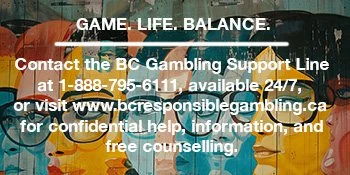The Underdog Effect: Why We Cheer for the Little Guy in Sports Films
Few film genres create as visceral an emotional response as sports dramas featuring longshot contenders. From Stallone’s working-class boxer to the amateur hockey team that shocked the world, these stories tap into something fundamental about human aspiration.
What is it about disadvantaged competitors chasing victory that ignites our collective imagination? What psychological alchemy makes these unlikely hero stories so universally compelling for sports fans to bet on them and those who can’t tell football from soccer? This article digs into the science, culture, and timeless appeal of underdog narratives in sports films, breaking it down into five key angles for a U.S. sports crowd.
The Neuroscience of Hope
There’s a scientific reason underdog stories give us chills: unexpected wins activate our brain’s reward system more intensely than favored victories. This chemical euphoria stems from the shock value itself. Sports fans remember the miraculous win of the U.S. Olympic hockey team against the Soviets. The iconic underdog film Miracle was released in 2004, dramatizing the 1980 “Miracle on Ice” upset. This quintessential Cinderella story generated that unique sporting euphoria - the kind only matched by an against-all-odds basket at the buzzer.
The Myth We Need to Believe
Stories of unlikely victors reinforce a cherished cultural belief - that determination can overcome natural advantage or social standing. This concept, deeply connected to the meritocratic ideals central to American identity, implies that sufficient effort can elevate anyone to success. It has roots that stretch back, like David slinging stones at Goliath, proving that effort can topple giants. Sports films lean into this, showing scrappy athletes overcoming stacked decks. We buy into it because it mirrors our hope that dedication pays off, even if reality doesn’t always agree.
The Shared Struggles
Underdogs feel like us. They’re the high school benchwarmer or the guy hustling for a promotion against all odds. When the diminutive protagonist of Rudy finally takes the field after countless rejections, audiences cheer because they see their own struggles in his. The 1993 film crystallizes the universal experience of being told “you’re not enough” - and proving the doubters wrong. That relatability hooks us, turning a movie moment into a mirror for our own lives.
The Villain Problem
A good underdog story needs a big bad to beat. Ivan Drago in Rocky IV is a striking example: a huge, seemingly unbeatable threat that made everyone on the side of the screen question if Rocky could even do it this time. Sports have a lot in common, like the most epic standouts in tennis, where fans and pundits made one of the sides in the Federer-Nadal rivalry an underdog. The villain isn’t just a plot trick, it’s the fuel that makes the comeback worth cheering for.
The 2025 Twist
Fast forward to 2025, and tech is shaking up how we see underdogs. Streaming services now use AI to pick out characters we’ll root for based on our viewing habits, almost like drafting a fantasy football team tailored to our emotions. But here’s the rub: when films like Creed III lean too hard into predictable underdog beats, the thrill can fade. If algorithms make every twist feel engineered, will we still get that dopamine hit? It’s a question worth pondering as tech keeps rewriting the playbook.
Why It Matters
Underdog stories aren’t going anywhere. They blend brain science with the tales we’ve told since ancient times, all wrapped in the sweaty drama of sports cinema. From the neuroscience of a surprise win to the comfort of believing effort trumps all, these films tap into something primal. Dramas aren’t the only genre you can explore: documentaries, although the ending is already known, have their own way to show the facts entertainingly. Series, YouTube essays, full-length movies: sports underdog stories told in any format might captivate anyone.
For now, the underdog effect holds strong. It’s the rookie hitting a grand slam in the ninth, the comeback that keeps us believing in the little guy. Science backs it, culture shapes it, and sports films bring it home. But as tech evolves, so will our love for these tales, and that’s a twist still in play.
Please play responsibly. The 2SLGBTQiA+ community is known to be at higher risk for gambling-related harm due to a range of social and economic factors. If you or someone you know is struggling with gambling, there are support services available in British Columbia. Contact the BC Gambling Support Line at 1-888-795-6111, available 24/7, or visit www.bcresponsiblegambling.ca for confidential help, information, and free counselling.









